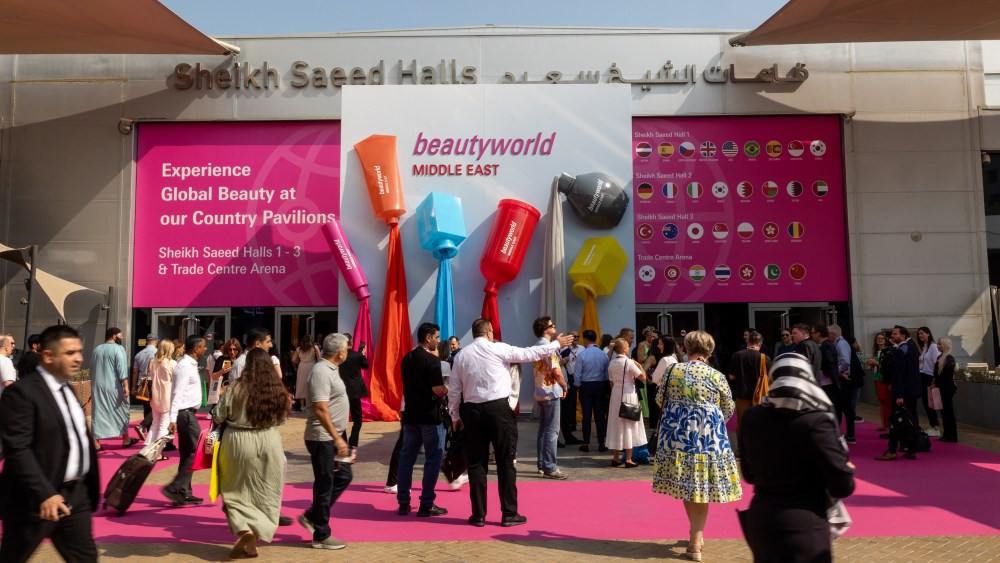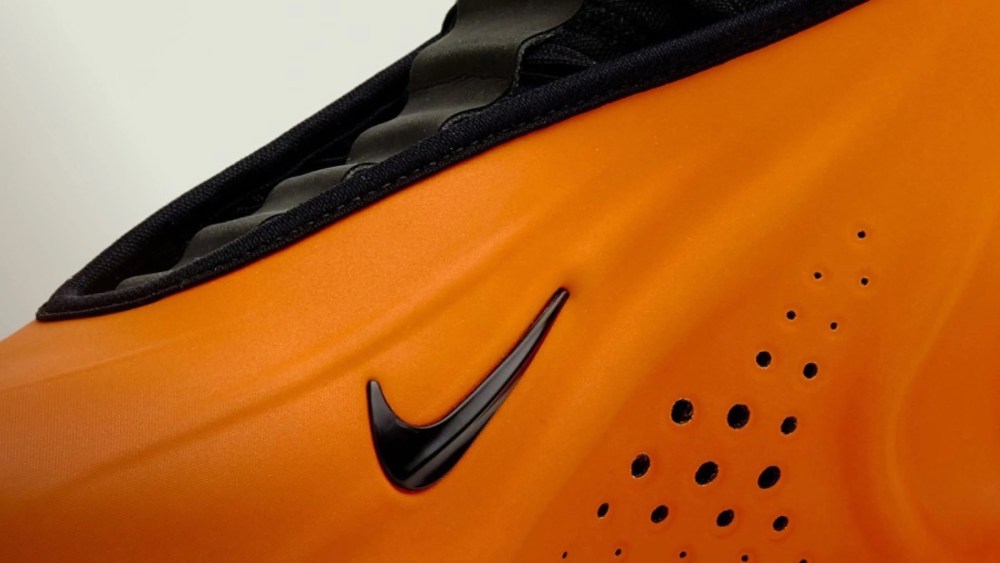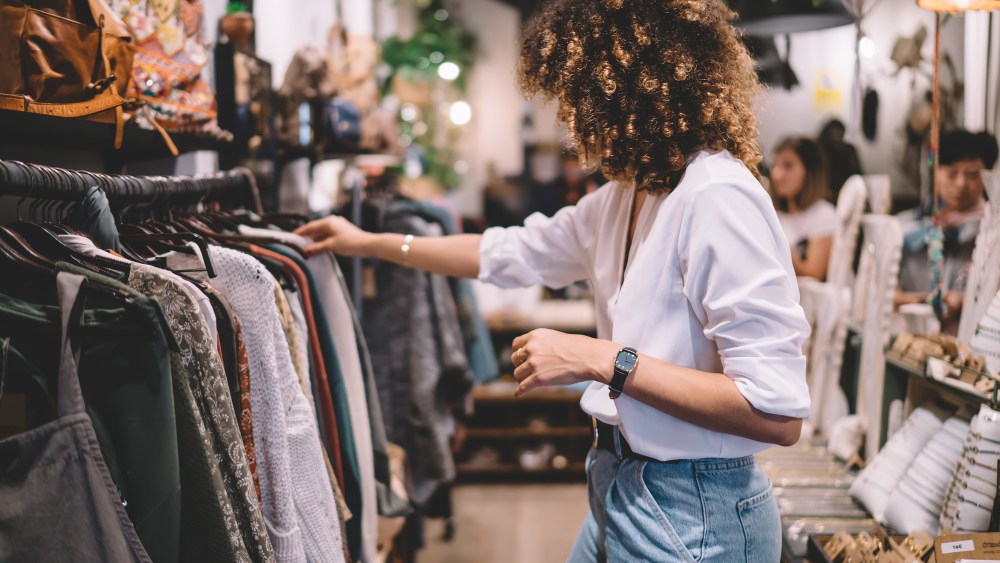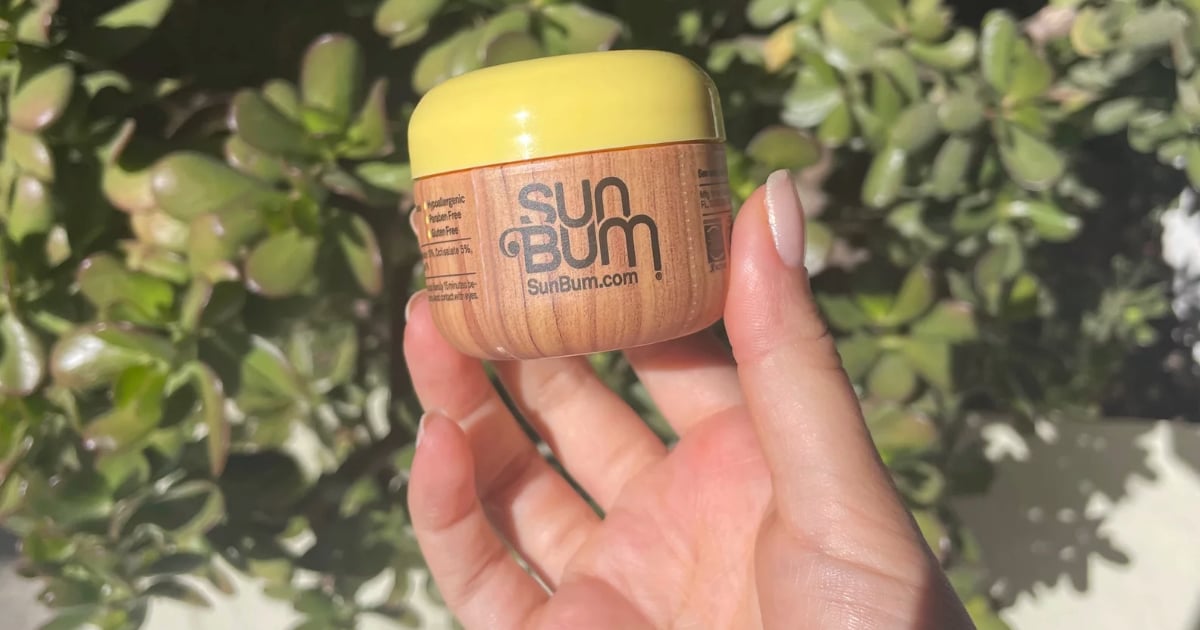DUBAI — Beautyworld Middle East shattered records and spatial boundaries from Oct. 27 to 31, consuming the entire Dubai World Trade Center for the first time in the fair’s 29-year history.
The sprawling event stretched across 1.1 million square feet — the length of 14.5 soccer fields — hosting 85,000 attendees from 178 countries, a 19 percent increase over last year. The scale underscores a powerful shift: the Middle East’s 18 percent beauty market growth and its rising influence on global fragrance culture.
Related Articles

International beauty brands surged across the show floors. Korean skin care drew standing-room-only crowds, celebrity makeup artist Hung Vanngo gave his first masterclass, and in the bustling fragrance halls niche perfume houses attracted international distributors eager to understand how Arabic fragrance is reshaping global perfumery standards.

“The world is coming to Dubai for beauty, and the city now truly stands as the global capital of perfumery and beauty,” said Ravi Ramchandani, show director for Beautyworld Middle East.
The scale of the event reflects the expansion of the Middle Eastern beauty market, which according to Euromonitor International, reached $44 billion in 2024 with a growth rate of 18 percent, significantly outpacing the global beauty market’s 7 percent growth. The research firm projects the region will maintain a 16 percent compound annual growth rate through 2029.
“The Middle Eastern beauty market is not just growing, it is setting global benchmarks,” Ramchandani said. “Consumers here spend more per capita on beauty than most markets worldwide.”
The strength of the market is perhaps best illustrated by retailer appetite. Ulta Beauty opened its first retail location in the region in Kuwait on Friday with a robust growth plan over the next several months. Sephora‘s Dubai Mall flagship has long been buzzed about by brands as being the productive location in the world, underscoring the region’s exceptional consumer appetite for premium beauty products.
Fragrance Steals the Show
The fragrance category is particularly robust in the region. According to Euromonitor data, fragrances in the Middle East and Africa grew 11 percent in 2024, compared with 7 percent globally. This cultural affinity for scent attracted more than 100 niche perfume houses, double the size of 2024’s fair.
Sabrya Meflah, president of Fine Fragrances at International Flavors & Fragrances, who exhibited at the fair with its SENS Perfumery Studio, said the Middle Eastern influence on global fragrance is transformative. IFF opened a creative hub in Dubai earlier this year, underscoring the region’s growing importance to global fragrance development.

“Fragrance is a part of the culture here, they look at this like a real jewel,” Meflah said. “The Middle Eastern influence on the global fragrance world is amazing. Fine fragrance is the fastest-growing category, and when you look at the influence of Arabic perfume ingredients on Western fragrance, it’s really interesting that this intersection of qualitative, it’s more of a performance.”
Veronique Gabai, the former global president of Estée Lauder fragrances who launched her own brand in 2020, made her Beautyworld debut this year.
She too sees significant opportunity in the region’s sophisticated consumer base. “It’s very important for me to start the conversation to distribute the brand in the Middle East,” said Gabai, who spent the week standing in her brand’s booth tirelessly meeting hundreds of visitors. “This is the the best part of these events, what we hear and see the being close to people.”
She said fragrances with complexity, longevity and performance on both skin and fabric resonate particularly well with Middle Eastern consumers, sharing that she is already thinking of fragrances specifically for the Middle Eastern market. “We know from our business in London what this consumer is gravitating to within the brand. We will take what they love and expand on it and make it more powerful — more sillage, more longevity, because I think here it’s so important.”
Wellness brands are equally optimistic about regional expansion. Jill Cnudde, chief executive officer and founder of the fast-growing Belgian wellness brand Bbody, sees the Middle East as less saturated than established markets like the U.S., presenting a significant first-mover advantage for premium wellness products. “We want to take the world, because I have a lot of ambition to do that. But the UAE has my heart,” Cnudde said.

The brand’s focus on supplement absorption, biohacking and longevity aligns with growing consumer interest in the region. Participating in Beautyworld Middle East for the first time, she secured meetings with major retailers, including Boots. She also called out the many business advantages to being based in the UAE and is considering a corporate headquarters shift from Europe to the region.
The K-beauty Wave
Korean skin care brands also generated significant buzz on the show floor, with exhibitors including Wishtrend, VT Cosmetics and Skin1004 drawing large crowds. The strong presence reflects South Korea’s rising dominance in the global beauty market and particularly in the Middle East.

Sarah Chung Park, cofounder of Landing International, which has launched more than 200 K-beauty brands globally, presented data at the fair that showed Korean beauty exports reached an all-time high of $10 billion in 2024, making South Korea the third-largest cosmetic exporter in the world.
The Middle East has emerged as one of the top five markets for K-beauty, with UAE exports doubling from $82 million to $171 million last year, while Saudi Arabia saw a 69 percent increase. “UAE now ranks among Korea’s top four skin care importers,” Chung Park said.
The fair has become an essential platform for emerging brands seeking to establish themselves in the region. Haneen Odeh, founder of Snob, a luxury salon and spa destination in Dubai, has been attending since 2021 specifically to discover new brands.
“I walk the floor with a very curated lens,” she said. “I look for efficacy, innovation and a strong identity. The market is oversaturated, so what excites me are the products that stand out either through a distinct sensorial experience or a formulation story that feels modern and smart.”
This year, Odeh discovered several brands she plans to bring into Snob, including Femmue, a new generation K-beauty brand that “blends flower therapy with high-performing biotech,” Remilia for its botanical formulations, and Bodyguardz for its innovative red light converter device.
“Beautyworld allows me to see what categories brands are investing in, what they’re reformulating and where innovation is happening fastest,” Odeh said. “It’s a great opportunity to spot early-stage shifts before they hit retail.”
As Dubai continues to position itself as a global beauty hub, with major retailers like Ulta Beauty launching in the region, Beautyworld Middle East’s role as a connector between brands, distributors and consumers becomes increasingly vital.
“Dubai and Saudi Arabia are key growth drivers, markets that are both affluent and trend-conscious,” Ramchandani said. Add to that a predominantly young population, the majority under the age of 35, you have what he describes as an audience “ripe for experimentation and premiumization.”
As the fair looks ahead to 2026, which will also mark its 30th anniversary, Ramchandani said they plan to expand even further, growing sustainability, wellness and makeup innovation categories. “After 2024, we thought that was our best edition yet. Then came 2025 and we topped it. That’s Dubai for you, a city that constantly inspires you to do better.”



